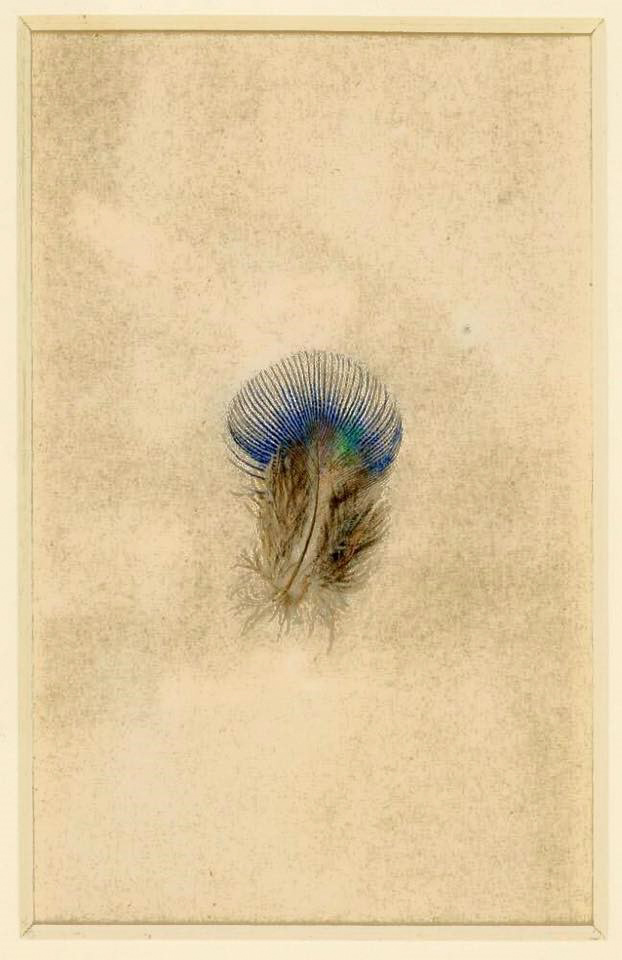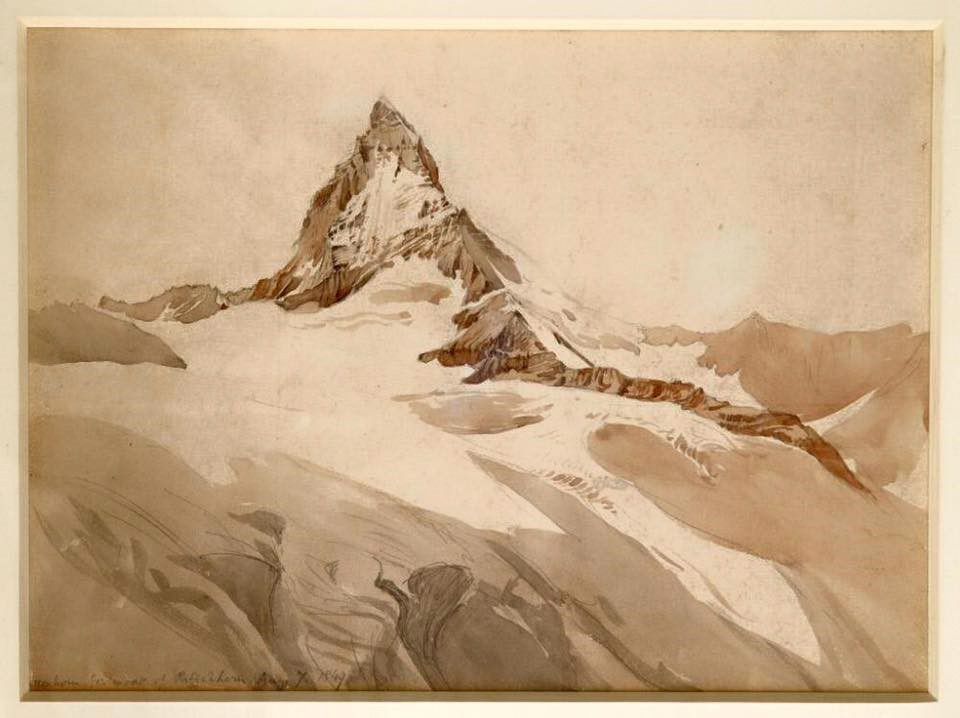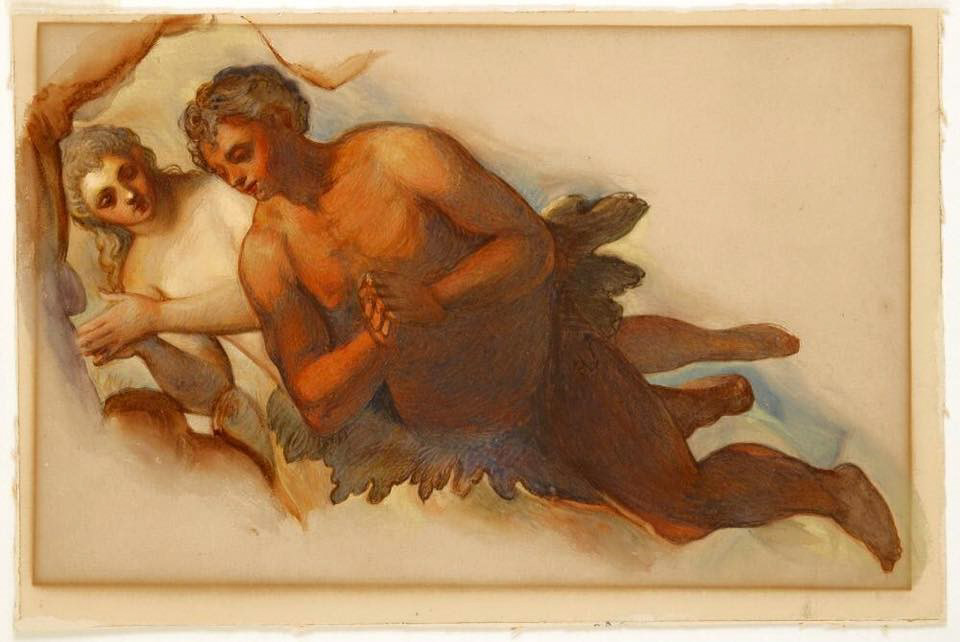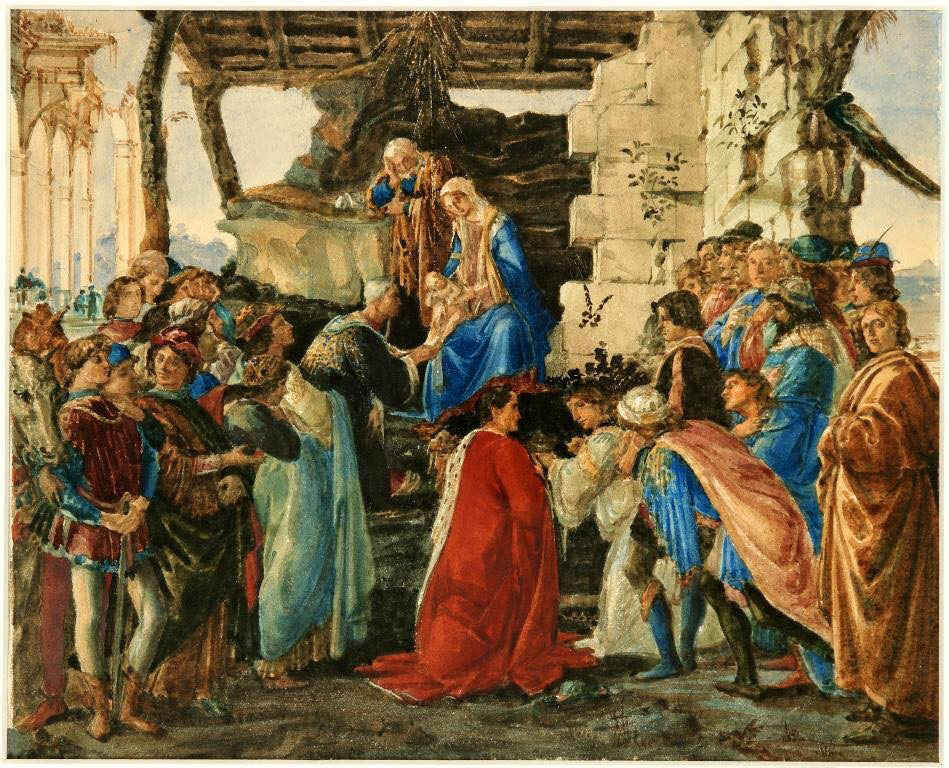Treasures from the Ruskin Collection
A CALENDAR OF TREASURES FROM THE COLLECTION
More works from the Ruskin Collection can be viewed online via the ArtUK website, HERE.
More works from the Ruskin Collection can be viewed online via the ArtUK website, HERE.

Ruskin wrote, "I have to draw a peacock's breast-feather, and paint as much of it [as] I can, without having heaven to dip my brush in." This "Study of a peacock's breast feather" (1873) is an exercise in understanding by close observation and drawing. In the process, Ruskin saw that the tips of each filament were composed of "glowing" tones and "rainbow iridescence". Unsurprisingly, this image makes for our most popular greetings card

The Ruskin Collection contains relatively few drawings and watercolours by Ruskin himself. This is arguably the gem of that small grouping, however. John Ruskin, "The Matterhorn from the Moat of the Riffelhorn" (1849) [Mont Cervin/ Monte Cervino]. This is one of several Matterhorn studies that Ruskin made in order to illustrate his book MODERN PAINTERS, Volume IV, which he sub-titled "Of Mountain Beauty". He drew it from different angles so that readers could trace the contours around the mountain. Ruskin later wrote that his drawings for MP IV were "the first faithful drawings" of the Alps. He felt that geologists had made their studies of the Matterhorn "under the influence of considerable excitement" owing to its unusual shape. He therefore photographed the mountain, too, checking the accuracy of his studies. At that time, no one had ever climbed the Matterhorn, so illustrations of it were necessarily imprecise. Nevertheless, Ruskin's mentor in geological studies, James Forbes, had encouraged him to take a scientific interest in its rock structure and Ruskin tried to show that the act of spending time drawing mountains from different angles and distances helped one to see them with greater understanding.

Ruskin considered Tintoretto's "Paradiso" (or “The Paradise”) "the most precious thing Venice possesses" and the greatest work Tintoretto ever created. It is over 10 metres tall and 25 metres wide and covers an entire wall of the council chamber in the Doge's Palace. This painting depicts only a detail.
 View
ViewCharles Fairfax Murray (1849-1919) "The Adoration of the Magi" after Botticelli (1873-76). This painting was commissioned to help illustrate Ruskin's lecture series "Ariadne Florentina" about the schools of art and design in Florence. Ruskin noted Botticelli's "stupendous power" and praised him for being as "high in intellect and moral sentiment" as he was talented as an artist. Ruskin admired the design and colouring of Botticelli's original painting and found Murray's "copy" (which was not intended as a detailed study) to be "entirely admirable".